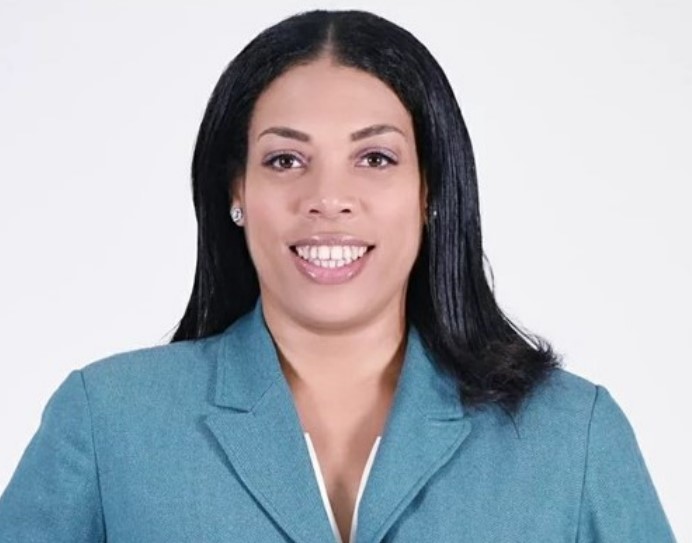By Chrissy M. Thornton
“Equity,” as defined by the Merriam-Webster dictionary as “justice according to natural law or right; freedom from bias or favoritism.” At its core, equity ensures fairness, providing historically marginalized groups access to the resources and opportunities they need to thrive. It is a word with profound meaning and transformative potential. Yet today, some organizations, leaders and corporations seek to erase it from their lexicon and mission statements. This misguided effort to align with political rhetoric from the Trump era—in a city like Baltimore, with its predominantly Black population and deeply entrenched disparities—is disastrous.

Baltimore’s history is one of resilience amidst systemic inequities. From redlining to underfunded schools and health disparities, the city’s Black communities have endured generations of systemic oppression. Some might consider these disparities purely historical, but for those engaged in equity work, it’s clear that today’s struggles are inextricably tied to past injustices. Systemic inequities persist, showing up in the racial wealth gap, unequal access to education and healthcare and disproportionate incarceration rates.
The fight for equity is not merely addressing historical wrongs; it is dismantling structures that perpetuate injustice still today. It’s about building pathways to fairness and opportunity. Equity is not a trend—it is a necessity. Yet, in the face of divisive national rhetoric that vilifies equity and denies systemic racism, some are abandoning their commitments to this critical work. Such abandonment is not just cowardly –yes, I said it– but perpetuates the very injustices equity movements aim to dismantle.
Organizations that retreat from the word “equity” to appease those uncomfortable with addressing race and injustice are choosing to prioritize fragility over progress. History shows us that avoiding inequities only prolongs suffering and deepens divides. Now is the time for Baltimore’s organizations, community members, corporations and philanthropic leaders to recommit to the work, not shy away from it.
In the aftermath of George Floyd’s murder, many organizations made performative gestures, declaring their commitment to equity. Statements were issued, social media posts went viral and promises of change were made. However, as the spotlight dimmed, so too did the enthusiasm of some efforts. Organizations that truly invested in equity before George Floyd’s death remain steadfast, recognizing that this work requires endurance. Meanwhile, those whose efforts were shallow have rolled back their commitments, exposing their lack of genuine intent. We see you.
Let me be clear: “equity” was never a buzzword and it has always demanded accountability.
Organizations dismissing the term – a word that embodies inclusion and fairness – should reflect on the harm they are actively causing. By doing so, they undermine hard-won progress and signal that placating detractors matters more than real people.
Outside of the civil rights movement, history offers countless examples of the consequences of neglecting equity. Consider women’s suffrage efforts. Had equity been embraced earlier, millions of women could have shaped societies that excluded them. Similarly, think about the experiences of Jewish communities throughout history – facing exclusion, systemic discrimination, and violence. Had equity been a guiding moral principle, tragedies such as the exclusionary quotas in higher education and the refusal of refuge to Jewish immigrants during the Holocaust might have been averted, saving countless lives and fostering greater societal inclusion. The concept of equity addresses society’s harms and missteps by ensuring that resources, opportunities, and support are distributed in ways that rectify injustice. Why would anyone in good conscience be pushing to move away from that?
In Baltimore, the stakes are particularly high. The city’s racial wealth gap, health inequities and educational disparities are not abstract—they are ongoing lived realities. While our region is asset rich and progressing, until everyone has access to the progress, we haven’t won. Dismissing the word equity and the work it represents is not just symbolic; it is a tangible threat to Black people.
The Baltimore region needs leaders who are brave enough to advocate for justice, even when it is unpopular. It requires organizations that will stand firm in their commitment to equity, recognizing that fairness benefits everyone. Communities must hold these leaders and organizations accountable, demanding bold and unapologetic reform. Challenging systemic racism, economic inequality, and social exclusion isn’t always a lot of fun. But, to abandon equity work is to abandon the people who need it most.
Baltimore’s future, and that of the nation, depends on our willingness to address longstanding disparities with courage and urgency. Now is the time to reject the rollback of progress and demand that organizations, corporations, and philanthropic entities remain committed. Equity is not a partisan issue; it is a moral imperative. It ensures everyone, regardless of race, gender, income, or ability, has the opportunity to succeed.
To those who remain steadfast in their commitment to equity – THANK YOU. Your work is invaluable, your courage inspiring. To those reconsidering their missions and statements, reconsidering their funding priorities, or reconsidering their investment in learning and growing – stop retreating and recognize the harm you are causing – abandoning equity is a betrayal of progress and perpetuates the very injustices you once vowed to address. To those who would erase equity from our vocabulary and work – history will remember where you stood.
If you’re counting, I’ve used the word equity 25 times throughout this piece–inclucing the headline– and I’ll keep using it until we no longer need to explain its importance. Someone has to.
Equity is the only path forward, and it’s time we all walk it together.
The post Commentary: Equity is not a dirty word appeared first on AFRO American Newspapers.











